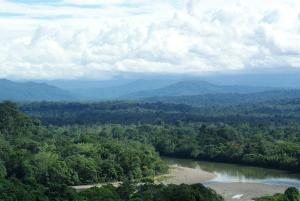A pair of Canadian activists arrested for selling "safe supply" drugs are challenging the country's drug law, Delaware's governor signs a marijuana banking protection bill, and more.

Marijuana Policy
Delaware Governor Signs Bill to Protect Banks That Work With Marijuana Businesses as Adult-Use Market Prepares for Launch. Gov. John Carney has signed into law legislation that will create state-level protection for banks that provide services to legal marijuana businesses, House Bill 355. Carney's signature comes nearly four months after the bill passed the legislature and as the state prepares for the inauguration of its legal adult-use marijuana market.
Sponsored by Rep. Ed Osienski (D), who has championed marijuana reform in Dover for years, the bill clarifies that financial and related service providers will not be subject to state-level prosecution for working with pot businesses.
Lawmakers "want Delaware’s safe and regulated industry to out-compete the illegal market," Osienski said. "By providing dispensaries with a secure avenue to banking and compliance services, we empower them to contribute positively to our economy, keep costs down for the industry and customers, employ local talent, and fulfill their tax obligations," he said.
The bill's synopsis says it "aims to facilitate the operation of cannabis-related businesses by helping to ensure that such businesses have access to necessary financial and accounting services."
In the meantime, the state now says the legal market should be up and running by March.
Hemp
US Army Bans Delta-8 THC. In an update of its drug policy, the US Army has banned delta-8 THC, a synthetic form of THC made from hemp-derived CBD. Although derived from low-THC hemp, delta-8 THC can alter consciousness.
The Army said it was banning delta-8 THC because it is widely accessible after passage of the 2018 Farm Bill, which legalized low-THC hemp and CBD but did not address intoxicating products derived from hemp. The Army already forbids the use of marijuana or other drugs.
The Army has moved to restrict marijuana and hemp derivatives before. In 2021, it banned the use of all hemp products, including CBD even though it is legal and unregulated at the federal level.
The new Army drug policy also includes measures to strengthen substance abuse programs and "deglamorize" illegal drug use. It also tightens rules around prescription drugs, requiring soldiers to renew their prescriptions every six months. Any positive drug tests for drugs prescribed more than 12 months previously could be treated as illegitimate. The Army says it maintains a zero-tolerance approach to drug and alcohol misuse.
International
Vancouver Activists Charged for Providing "Safe Supply" Drugs File Challenge to Federal Drug Laws. Two founders of the Drug User Liberation Front (DULF) charged in June with drug trafficking for providing "safe supply" drugs to users have launched a legal challenge to the federal drug laws. Jeremy Kalicum and Eris Nyx had been providing the drugs for the last two years, saying that they wanted to prevent drug user deaths from an impure illicit drug supply.
Their legal challenge argues that the current drug laws infringe on the life and liberty of illicit drug users by forcing them into unregulated illicit markets. It also argues that the drug laws amount to discrimination based on a disability -- addiction.
More than 11,000 people have died of drug overdoses in British Columbia in the past five years.
The DULF pair said Canada has failed to protect users by blocking access to "a regulated, predictable supply of substances," that they sold drugs to provide "regulated alternatives to street drugs" in the province, and that their club was a "sensible, rational and urgently needed response in a full spectrum of care" to address the overdose crisis.
In the lawsuit filed with the provincial Supreme Court, the pair asked for the drug trafficking charges against them to be dropped and that a section of the Controlled Drugs and Substances Act (CDSA) prohibiting the sale of illegal drugs be declared unconstitutional.
Ecuador President Says Country is Becoming a Coca-Cultivation Center. President Daniel Noboa, who has pledged to eradicate coca crops in his country, said in a radio broadcast Tuesday night that drug gangs have begun to grow "significant" amounts of coca inside the country. He said nearly 5,000 acres are currently being cultivated.
While Ecuador has seen rising levels of violence linked to the black market in drugs in recent years and now serves as a key transit hub for cocaine destined for Asia and Europe, significant coca growing inside the country would mark a turn for Ecuador -- and Noboa is not going to stand for it, he said.
"A message to the groups of narco-terrorists: We are not going to ignore this," Noboa said. He added that the military began eradication operations last week.
Noboa has declared a war on domestic drug gangs after winning a violence-plagued election a year ago. He enlisted the military to control prisons and patrol crime-battered urban areas. Still, that move left the military unable to monitor the border with Colombia as intensely as before, allowing gangs to increase coca production in the country.
This work by StoptheDrugWar.org is licensed under Creative Commons Attribution-ShareAlike 4.0 International
Add new comment